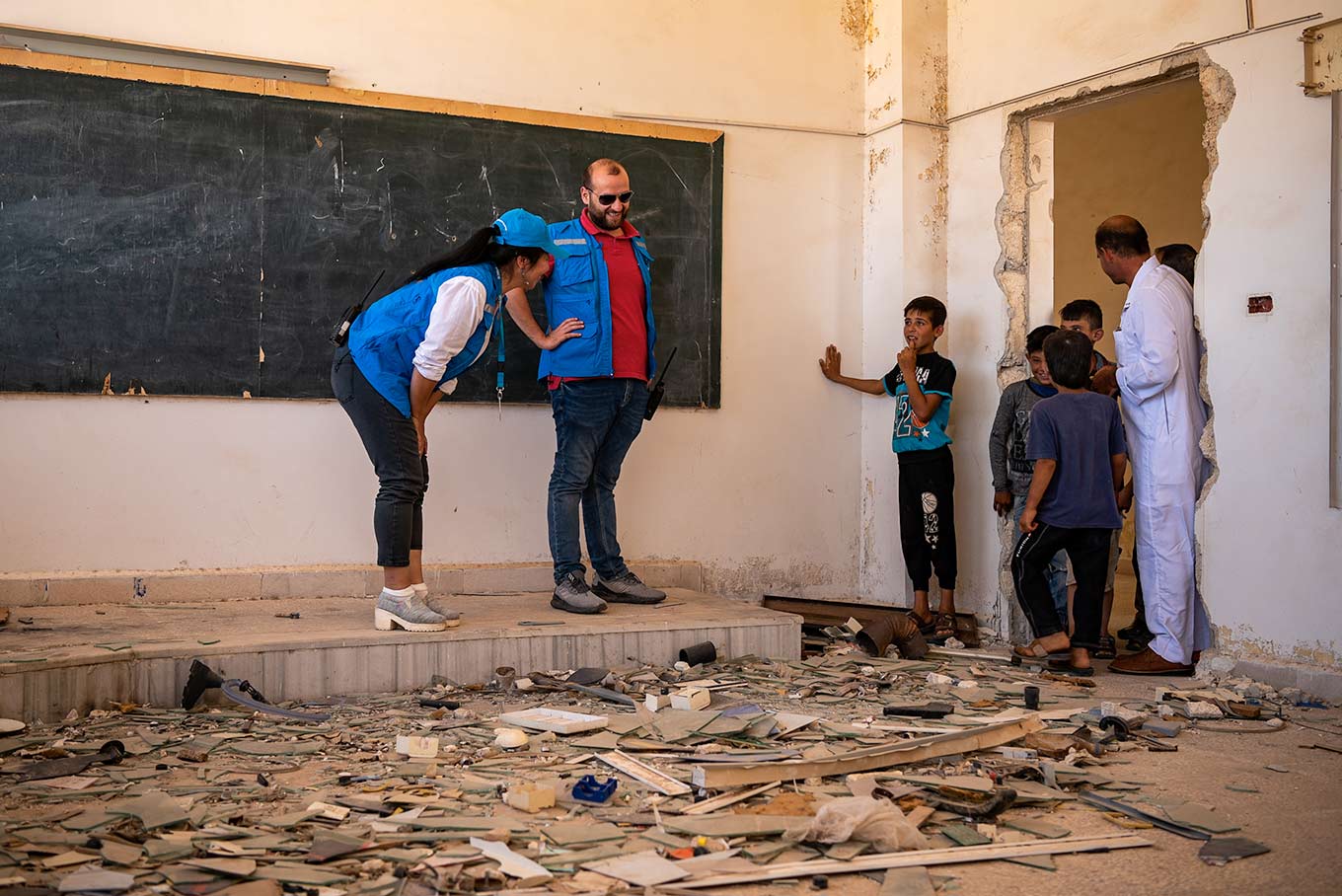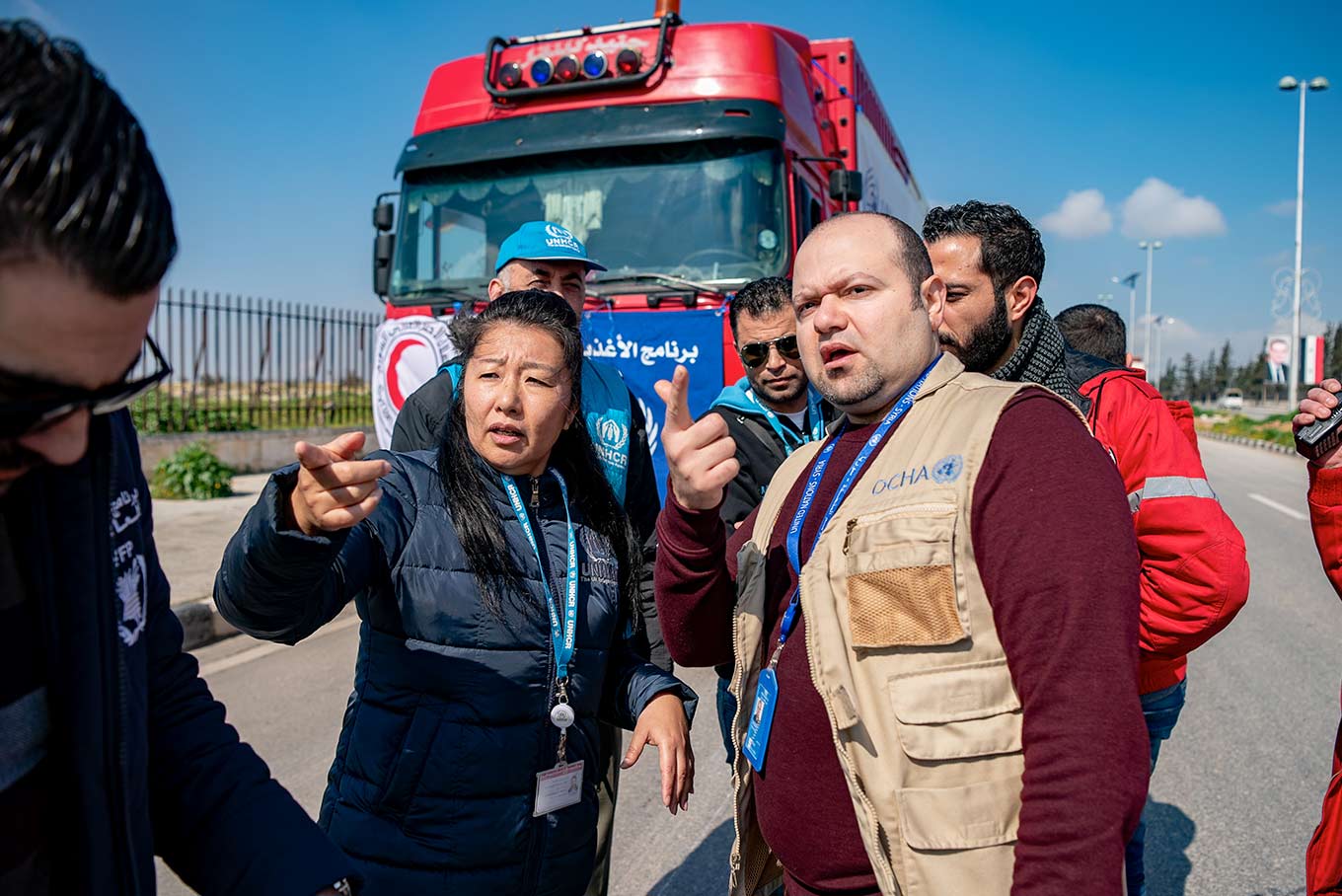A day in Aleppo with Yumiko Takashima
“It’s about how we as humans can help each other”.
© UNHCR/Antwan Chnkdji
Yumiko Takashima is an aid worker who has been with UNHCR for over 20 years. Here, she describes a typical day’s work in Aleppo, Syria.
08:00 a.m. After a quick breakfast, I’m in a car, ready to go to the office. It’s only a 10-minute drive but we have to take a different route every day for safety reasons. We drive in armoured vehicles anywhere we have to go.
Half of Aleppo has been destroyed, the other half is intact. One street divides the two sides. If I stand in the middle of that road, I feel like I’m in a movie – it is so unreal, but it is real. The needs here are huge. There are about 1.4 million people in need in and around Aleppo and behind that number there are real people, with real lives.
That’s why I’m here: it’s about how we as humans can help each other. What amazes me is people’s resilience. People have faced very difficult situations, but they don’t look back, they just want to move forward.
2:00 p.m. I meet with the staff of a national organisation that’s helping UNHCR distribute winter supplies. During winter it’s extremely cold here. That’s why we provide materials like plastic sheets to help families cover destroyed windows and doors to keep out the cold. Last winter we assisted over 215,000 people in the area with essential items such as sleeping bags, winter jackets, blankets and plastic sheeting.
6:00 p.m. Most staff leave the office before it gets dark — for our safety. When I get back to my hotel I continue working, preparing for the next day. If you asked me to describe this job, I would say that it’s something I’m lucky to be able to do. Even if it’s hard being away from my family and friends.
We may not always be able to do as much as we want but even listening to people and showing that we care matters. They’re people like you and I, who just happen to be in this difficult situation, through no fault of their own.
Learn more about UNHCR’s Syrian crisis response work.




